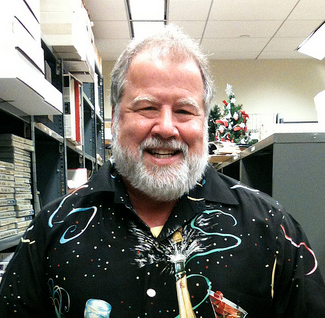All about TV Worth Watching from David Bianculli, Founder and Editor.
ABOUT TV WORTH WATCHING
The purpose of TV WORTH WATCHING is to ferret out and celebrate what's good about TV. The bad stuff, certainly, is easy enough to find. But in an ever-expanding TV universe, and with newspapers devoting less space and resources to quality analysis of television, where can a person turn to find trustworthy, informed recommendations about the best of what's out there?
That place, it is hoped, is right here.
Visit the TV WORTH WATCHING home page every day, and you'll get a brief listing of the day's very best television offerings - whether they're weekly series, documentary specials, movies, children's offerings, or bizarre but worthwhile cult items.
Also, you'll get to read regular columns - okay (sigh), blogs - by contributors who are both excellent writers and perceptive critics. With our 2012 redesign, each has his or her individual home page, making it easy to find their current and archived commentary. And truly, the writers gathering here continue to be among the best in the business.
TV WORTH WATCHING also provides recommendations about the best new releases of TV shows on DVD, and suggests some classics you might want to check out that you haven't yet seen. There are also the same types of recommendations about books related to TV, and about TV-related CD collections. No matter what the format - DVDs, CDs, books - nothing is listed on TV WORTH WATCHING unless it's really good. Really.
Other elements of this website, for those who take the time to poke around, include spaces devoted to interesting video, TV theme songs, TV "Extras" (my term for hidden TV in-jokes), and occasional special sections devoted to holiday specials, DVD holiday releases, and fall TV lineups.
The basic goal is: If something good is coming on TV, we'll let you know. And if something worth discussing has been televised, from breaking news to memorable finales, we'll weigh in on that, too. Come along for the ride - and let us know what YOU think.
ABOUT DAVID

David Bianculli has been a TV critic since 1975, when he first got paid to write columns about television for Florida's The Gainesville Sun, while still a student at the University of Florida. The starting pay was $5 per column, and the ending pay wasn't much more - but those clips, and a Masters degree in Journalism and Communications, were enough to land a full-time job in 1977, writing about television for The Ft. Lauderdale News, which eventually became The Sun-Sentinel.
From there, other TV critic jobs followed: Ohio's The Akron Beacon Journal (1980-83), Pennsylvania's The Philadelphia Inquirer (1983-87), The New York Post (1987-93), and, most recently, The New York Daily News (1993-2007). On radio, he provided a TV review for the inaugural nightly broadcast of National Public Radio's Fresh Air in 1987, and has been that show's TV critic ever since. He also serves as guest host, substituting for Terry Gross.
Bianculli has published books on television and its impact: Teleliteracy: Taking Television Seriously (1992) and its even more clunkily titled sequel, Dictionary of Teleliteracy: Television's 500 Biggest Hits, Misses, and Events (1996). In 2009, he completed a third:Dangerously Funny: The Uncensored Story of 'The Smothers Brothers Comedy Hour.'
His fourth, The Platinum Age of Television: From I Love Lucy to the Walking Dead, How TV Became Terrific, (2017) is an effusive guidebook that plots the path from the 1950s’ Golden Age to today’s era of quality TV.
He's also contributed chapters to other books, including The Critical Response to Kurt Vonnegut (1994), Mister Rogers' Neighborhood: Children, Television, and Fred Rogers (1996), and Reading Quality TV: American Television and Beyond (2007).
His articles, columns and reviews have appeared in TV Guide Magazine, Broadcasting & Cable, The New York Times Book Review, Rolling Stone, The Week, Variety, Film Comment, The London Independent, Washington Journalism Review, Electronic Media, Television Quarterly, Television Business International, Taxi, Fame, Parents' Choice, Family Life, Channels of Communication, and syndicated in hundreds of daily newspapers.
He also teaches TV and film history and appreciation as a full-time associate professor at Rowan University in New Jersey, introducing almost all of his students to the likes of Rod Serling's Patterns and the zany work of Ernie Kovacs.